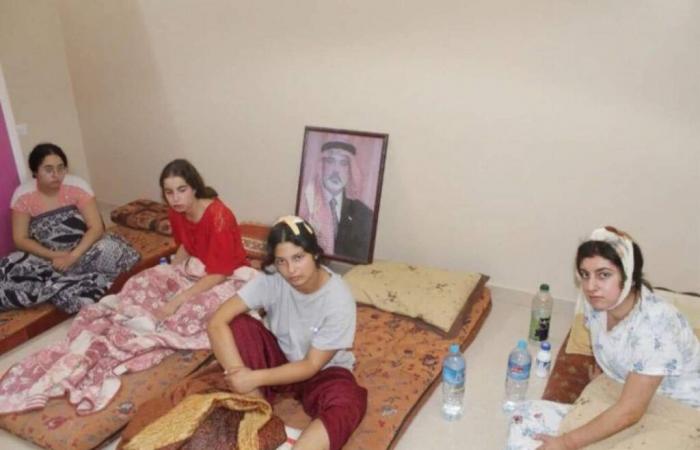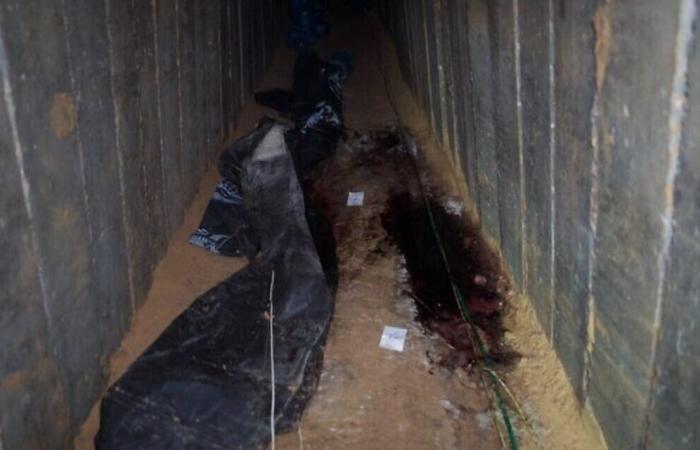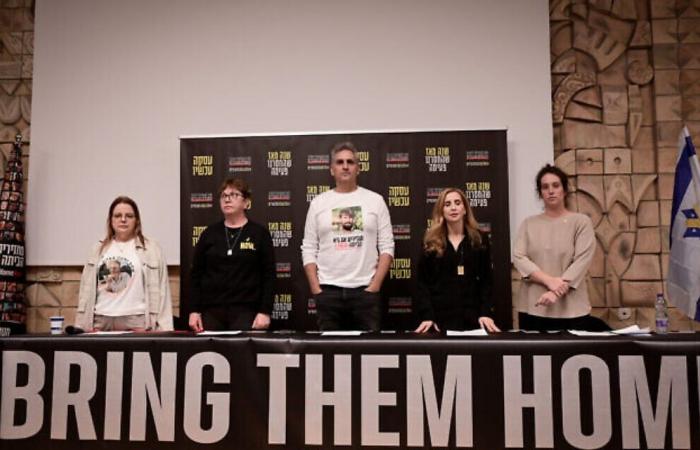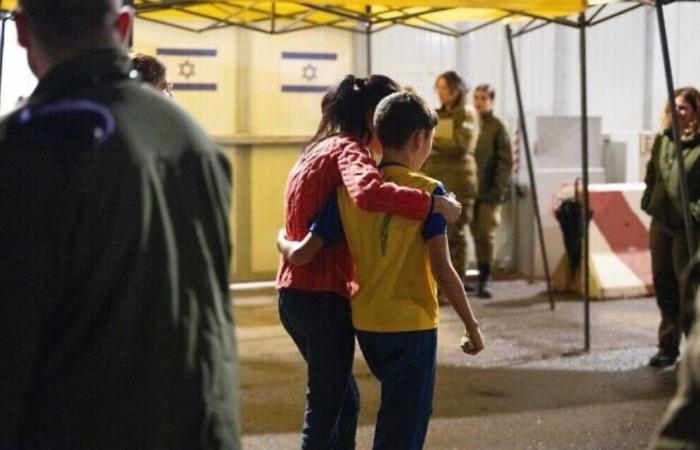While preparations are underway for the eventual return of the hostages – 33 are expected to be released in the first phase of the deal currently being negotiated between Israel and the Palestinian terror group Hamas, with most of them alive – Dr. Noa Ziv of Schneider Children’s Hospital distinguished the current state of the hostages from that of the 105 civilians released during the week-long truce concluded in late November 2023.
“We found that the hostages were in complex condition, although they had few medical problems,” Ziv told Times of Israel this week.
“It was after around fifty days of captivity. One can only speculate about the complex health and mental state the hostages will find themselves in after 466 days of captivity. »
To not miss any of the news,
receive the Daily Headline on your email
By registering, you agree to the terms of use
The hostages who could be freed are among 251 people kidnapped on October 7, 2023, when some 6,000 Gazans including 3,800 Hamas-led terrorists stormed southern Israel, killing more than 1,200 people, mostly civilians, kidnapped 251 hostages of all ages – committing numerous atrocities and perpetrating sexual violence on a large scale.
Ziv, who led a groundbreaking study of the nineteen children and seven women who were freed in November, said the hostages exhibited the effects of psychological terror due to war strategies that included isolation, intimidation, lack of food and water, as well as psychological violence.
They suffered from significant weight loss, emotional trauma and complications due to poor hygiene and lack of appropriate medical care.
Dr. Noa Ziv, chief medical officer at Schneider Children’s Hospital. (Credit: Courtesy)
When Hamas released the 105 hostages, they were taken to one of the following six Israeli hospitals: Soroka, Sheba, Wolfson, Ichilov, Shamir or Schneider Children’s Hospital.
The Health Ministry said it was not yet able to provide information on the future care of the hostages who will be released.
Confidentiality and optimal medical care
“The most important thing will be to ensure that the released hostages have some privacy and good medical care within their families,” said Dr. Mark Clarfield, professor emeritus of geriatrics at Ben Gurion University, at Times of Israel.
Pools of blood inside a tunnel in southern Gaza’s Rafah, where six Israeli hostages were murdered by Hamas terrorists, in an image released on September 10, 2024. (Israeli Army)
In collaboration with Dr. Hagai Levine, president of the Israel Public Health Association, Clarfield authored a study of three elderly hostages held in Gaza.
He added that medical professionals will then look into the specific health concerns of those affected.
“Not everyone has hypertension, not everyone has diabetes, but people with specific conditions will need timely and specialist advice on this,” Clarfield stressed.
“There are probably infection and nutrition issues, depending on where they were held, whether they were well-fed or not,” he continued.
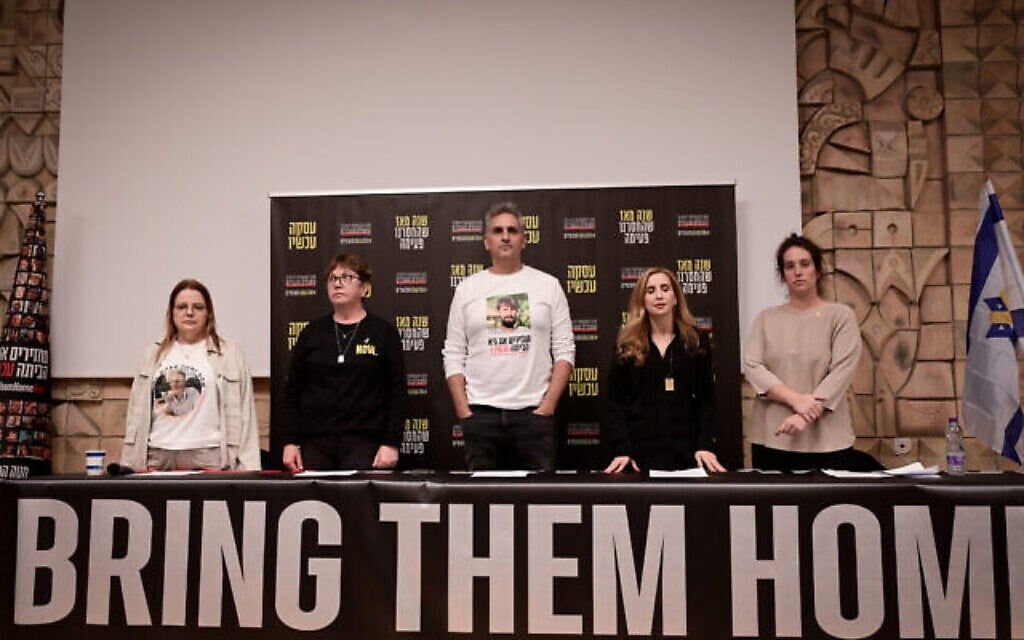
Freed hostages and relatives of Israelis detained in the Gaza Strip hold a press conference, in Tel Aviv, November 24, 2024. (Avshalom Sassoni/Flash90)
Some of the hostages were able to be isolated. They may not be aware of the situation, he added.
“There are psychological, physical, family and social issues that need to be addressed, but patiently and slowly, away from the spotlight,” Clarfield insisted.
According to him, the general principle is “rapid, patient and private care, which gives the hostages time to readjust, because when people are released from captivity, as was the case with Hamas, the situation is complicated and particularly difficult.
Burned and branded

Professor A. Mark Clarfield. (Credit: Courtesy)
Testimonies from hostages who were released as part of the November 2023 truce and those who were rescued by Israeli forces revealed that people were burned and beaten, starved and humiliated.
According to a Ministry of Health report submitted to the United Nations, these abuses took a toll on their mental and physical health, even long after their release.
The report said some hostages were kept for days in the dark, with their hands and feet tied, receiving little food and water. They were also beaten all over their bodies and some of them had their hair pulled out by their captors. Others were burned and branded with zinc-plated iron. Some, including children, have also been victims of sexual assault.
The hostages said there were no showers and they were forced to wait hours or even days before being allowed to use the toilets. Some were forced to defecate on themselves.
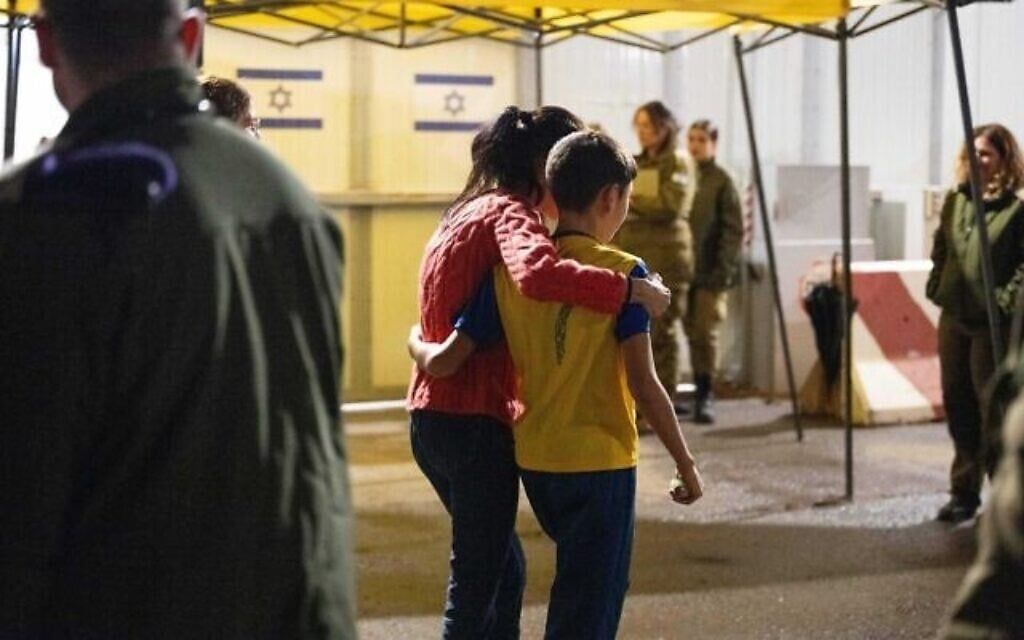
Eitan Yahalomi, 12, reunited with his mother at the Kerem Shalom crossing in Israel, November 27, 2023, after being released by Hamas as part of a truce agreement. (Credit: Israeli Army)
Ziv said blood tests revealed unusual infections in about half of the hostages: some suffered from tick-borne fever and others from Q fever, spread by inhaling dust or contact with sick animals. Some suffered from multiple insect bites and intense skin irritation.
All the captives were malnourished, Ziv found; Fifteen of them showed significant weight loss, up to 15% of their body mass.
According to the report, their diet consisted mainly of rice and white bread, with no vegetables, protein or fat.
Adina Moshe, who was kidnapped from Kibbutz Nir Oz and released as part of the November deal, told Walla that a long rehabilitation awaited the returning hostages.
“Everyone needs to understand that they will not go back to the way they were before. »

